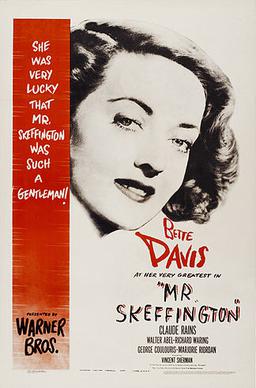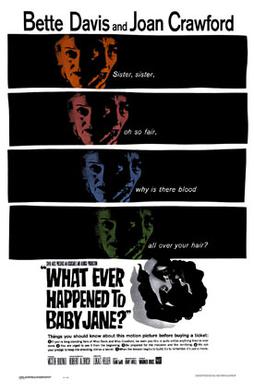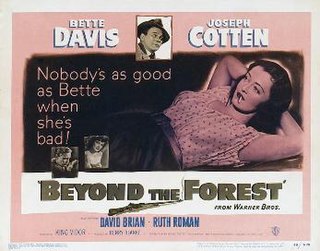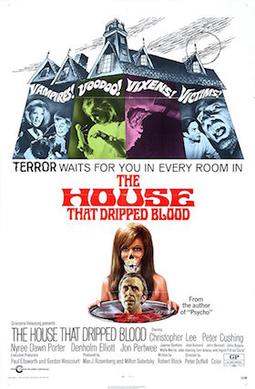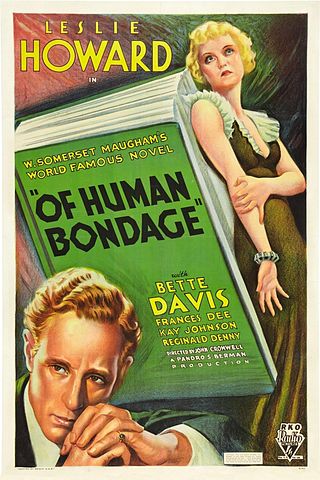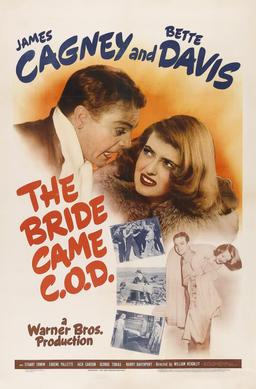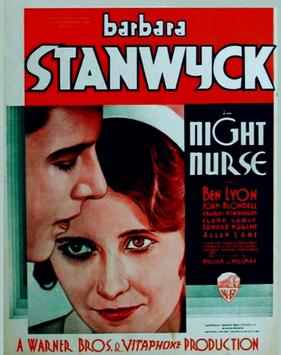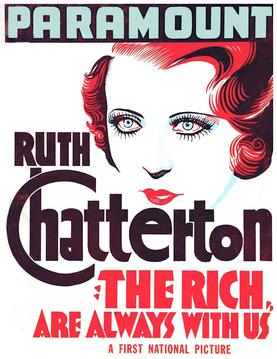Plot
Joey spends two years at a school for emotionally disturbed children after being blamed for drowning his younger sister Susy. The school's headmaster informs Joey's father, Bill, that his son harbours an intense dislike of middle-aged women. This extends to the family's nanny, whom Joey distrusts and disrespects.
When Joey returns home, he refuses to eat the meals Nanny prepares because he suspects she may poison him. He abandons the room Nanny has decorated for him and moves to one with a strong lock on its door. He makes Nanny promise she won’t go in the bathroom while he is taking a bath. Joey's rude behaviour upsets his neurotic mother, Virginia, who is prone to melancholy and crying spells, still grieving over the death of Susy. Nanny comforts Virginia as she did when she cared for her and her sister Pen when they were children.
Bill is a Queen's Messenger who is frequently away on business. He flies to Beirut for a few days leaving Virginia and Joey alone with Nanny.
Joey persuades Bobbie Medman, the 14 year old daughter of a doctor who is living in the flat above to witness a prank to frighten Nanny. He places Bobbie's large, life-like doll upside down in the bath, turns the taps on and closes the curtains and then tells Nanny someone has left the bath running. Nanny goes to turn the taps off and sees the doll, she starts moaning in anguish and has to go and lay down. Virginia tells Joey it was a very cruel prank to play after what happened.
Joey refuses to eat the steak and kidney pie Nanny has cooked for him, so she spoon-feeds Virginia the pie which is laced with poison. After Virginia falls ill and is taken to hospital, Joey is blamed for the incident. Joey's Aunt Pen, who has a weak heart as a result of childhood rheumatic fever, comes to babysit. After Pen and Joey play a couple of games of draughts and drink a ‘shared’ jug of hot chocolate Nanny tells Joey it is time for his bath. Once again he tells her to promise not to come in the bathroom but Pen won’t listen and tells Nanny she might as well lay on the floor and let Joey walk all over her.
Pen is just relaxing reading a magazine when Joey appears behind her, soaking wet, in a towel and he tells her that Nanny has tried to drown him. Pen refuses to believe him and he leaves, Pen is upset and has trouble with her heart, she calls out to Nanny to get her medicine out of her bag, which she does eventually and Pen comes around.
Joey appears at Bobbie's window dripping wet and claims that Nanny tried to drown him. Bobbie doesn’t believe him. He tells her what happened to Susy.
In a flashback, Nanny leaves the house for an appointment. Joey is playing by himself with his father's model railway. Susy threatens to tell their mother on Joey for being disobedient because he is not supposed to. She wants to play with him, but he tells her to go away and play with her dolls.
She goes into the bathroom to play and accidentally drops her doll in the bath. She tries to retrieve it by standing on a box and reaching behind the shower curtain but she falls into the bath. Nanny arrived back and sees Joey playing she enters the bathroom and absentmindedly turns on the taps by reaching through the closed shower curtain without looking inside. Unable to summon Susy for her bath, Nanny searches for her. When she returns to the bathroom, she finds Susy floating face down in the water. Her mind snaps and she bathes the girl's lifeless body. Joey witnesses this but Nanny does not see him. Eventually, she realises that Joey knows that she accidentally caused Susy’s death.
Joey tries to call for help but Nanny stops him and tries to get him to take a bath with Suzy’s lifeless body. Joey manages to get away and Nanny blames Joey saying he pushed Susy over while they had a bath together. He stops eating and sleeping in case she tries to murder him which is why he is eventually sent away. The doctor at the school says Joey is suffering from a massive guilt complex from killing his sister.
Doctor Medman finds Joey in his apartment and takes him back downstairs to Pen and Nanny. Joey wedges his bedroom door shut with a chest of drawers and sets up a makeshift alarm system.
Pen wakes during the night and finds Nanny standing outside Joey's door holding a pillow. Nanny claims the pillow is an extra one for Joey, but Pen remembers she would not allow her and Virginia to have pillows when they were children. Suspecting Nanny intends to suffocate Joey, Pen asks her what happened earlier when Joey emerged from the bathroom soaking wet. She gets over-excited and has a heart attack, however Nanny snatches her heart medicine from her.
As Pen lays dying, Nanny tells her she was a single mother who was called to the deathbed of her daughter, Janet, who died from an illegal abortion. Already shaken, she returned home to find Susy's body, which drove her over the edge. Nanny says she cannot let Joey live for fear that someone may believe his story and put nannies' livelihoods at risk because people entrust their children to them. When Nanny finishes her speech, Pen is dead.
Nanny tries to enter Joey's bedroom, but his alarm system wakes him and he tries to escape. Nanny grabs him by the ankle, causing him to fall and knocking him unconscious. She carries him into the bath and fills it with water and drops him in it. Soon the memory of finding Susy's body returns and Nanny pulls Joey from the bath.
Dr Medman visits Virginia's hospital room and explains that Nanny is mentally ill and will receive long-term care. Virginia discovers Joey is at the hospital and would like to see her. She tells him she knows everything about Nanny. Joey is no longer sullen; instead he hugs his mother and behaves like a joyful ten-year-old boy.
Reception
Box office
According to Fox records, the film needed to earn $1,300,000 in rentals to break even and made $2,175,000, meaning it made a profit. [3]
The movie screening rights were sold to American television for nearly $400,000. [4]
Critical
The Monthly Film Bulletin wrote: "The standard ending of a Bette Davis film these days is her departure for the mad-house. That, at least, is what one presumes is her fate at the conclusion of The Nanny; but the film ends on something of a dying fall, fading quietly away just as we expect to see Miss Davis in full maniac stride. Perhaps everyone felt that enough was enough; and this Hammer Horror is in fact so muted that one feels there may have been a certain tentativeness about tackling a subject which plays with only two possibilities – monster child or trusted nanny as psychopathic case-histories. ... the keynote of the film is the Davis performance – the quietest and most restrained since Baby Jane started this cycle. Whether feeding ducks in the park, preparing goodies for the outrageous Joey to reject, or explaining patiently to the dying Aunt Pen that of course she can't possibly give her the medicine, Bette Davis maintains the sweetly-smiling confidence of someone who knows that she is the most rational member of the household. ... Seth Holt's direction works best when tensions are being established – the edgy opening, for instance, with husband and wife fighting behind half-closed doors, Joey discovered in appalling misdeeds at the school, and Nanny beamingly serving a dinner nobody eats. When it comes to working the tensions out, there's some hesitation over just how monstrous everyone is supposed to be. The result is a mixture of non-horrific horror film and half-cock psychological exercise – watchable on both levels, not ape working on either, and with the confusions seeming to spring from the way the novel has been toned down in the script. Apart from Miss Davis, there's a performance of remarkable surly aplomb by 10-year-old William Dix, who seems almost alarmingly in control of his situation." [5]
The Radio Times Guide to Films gave the film 3/5 stars, writing: "The first of two movies Bette Davis made for Britain's Hammer films is a genuinely chilling horror tale, with a clever plot written by Hammer regular Jimmy Sangster. However, movie purists may well object to the fact that the flashbacks reveal incidents that never actually happened, manipulating the expectations of the audience. Despite valiant work from Davis and director Seth Holt, the narrative weaknesses and the general unpleasantness of the piece spoil what could have been an interesting addition to the genre." [6]
Leslie Halliwell said: "Muted Hammer experiment in psychopathology, with too much equivocation before the dénouement; the star's role allows few fireworks, and the plot is rather unpleasant." [7]
It holds a 91% approval rating on movie review aggregator website Rotten Tomatoes based on eleven reviews. [8]
AllMovie called it "one of Hammer Films' better non-supernatural outings of the 1960s". [9]


